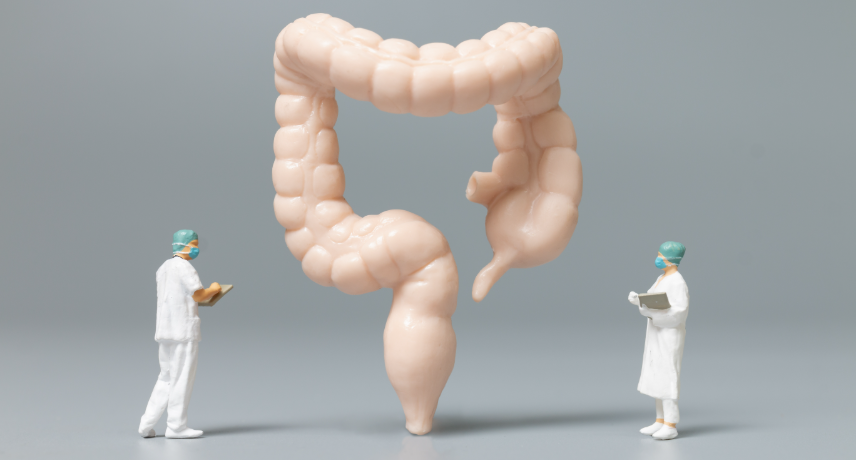24th July, 2025

Maintaining good digestive health remains essential for overall well-being. As modern lifestyles shift toward sedentary routines and fast-paced schedules, digestive issues have become more prevalent. From occasional bloating and acidity to chronic conditions such as Irritable Bowel Syndrome (IBS) and ulcers, your gut responds directly to your daily choices. Fortunately, adopting simple, consistent habits can protect your digestive system and enhance long-term health. Below, we explore effective ways to support your digestive health and highlight when to consult specialists in gastroenterology in Kolkata.
Fibre plays a crucial role in digestive health. Diets that include sufficient fibre from natural sources ensure smoother digestion and help prevent constipation. Whole grains, fresh fruits, vegetables, and legumes offer excellent fibre content. These foods also help regulate bowel movements and feed beneficial gut bacteria, which strengthens your gut microbiome.
Diets lacking in fibre increase the risk of developing conditions such as diverticulitis, haemorrhoids, and colorectal cancer. Avoid processed and refined foods that lack nutritional value and often irritate the digestive tract.
Water remains one of the most essential elements for digestion. It helps break down food, aids in nutrient absorption, and softens stool for easier elimination. Without sufficient water, digestion slows down and constipation often follows. Adults should aim to consume at least 2.5 to 3 liters of water per day. During summer months in Kolkata, when temperatures rise sharply, the body loses fluids more rapidly through sweat. In such conditions, your water intake must increase to avoid dehydration and digestive sluggishness.
Hydration also benefits the mucosal lining of the intestines and helps maintain the balance of good bacteria in the gut. Incorporating liquids such as coconut water, buttermilk, and soups provides hydration while offering additional nutrients.
Rushed meals or eating during moments of stress often lead to indigestion. Your body digests food more efficiently when you chew slowly, focus on your meal, and avoid distractions such as smartphones or television. Mindful eating supports better satiety, improved digestion, and reduced bloating.
Taking time between bites allows digestive enzymes to work more effectively. Creating a calm mealtime environment and eating with awareness also reduces the likelihood of overeating or consuming unhealthy snacks.
Probiotics help restore and maintain the natural balance of bacteria in your digestive tract. A balanced gut microbiome aids digestion, strengthens immunity, and manages symptoms associated with IBS and diarrhoea. Include probiotic-rich foods such as yoghurt, curd, and low FODMAP diet.
These foods introduce beneficial bacteria into the gut and support the breakdown of complex carbohydrates and proteins. They also help reduce inflammation in the digestive tract and may improve tolerance to lactose in sensitive individuals.
Movement stimulates the digestive tract. It reduces constipation and bloating. A sedentary lifestyle often causes digestive discomfort, weight gain, and a sluggish metabolism. Even moderate exercise, such as a 30-minute walk daily, improves digestion and promotes regular bowel movements. Yoga poses such as Pawanmuktasana or Vajrasana also aid digestion by improving circulation to abdominal organs.
Smoking and excessive alcohol consumption contribute to numerous digestive problems like GERD, gastritis, pancreatitis, chronic liver disease, etc. Smoking weakens the lower oesophageal sphincter, which normally prevents stomach acid from flowing back into the oesophagus. This condition, known as acid reflux, often causes heartburn and long-term damage if untreated.
Alcohol irritates the stomach lining, increases acid production, and may lead to inflammation, ulcers, and liver disease. Excessive consumption also disrupts the balance of gut bacteria, leading to further digestive complications. Reducing alcohol and quitting smoking not only improves digestive health but also lowers the risk of gastrointestinal cancers.
The gut and brain maintain constant communication through the gut-brain axis. Stress, anxiety, and emotional distress often cause digestive symptoms such as cramping, diarrhoea, or constipation. Chronic stress aggravates conditions such as IBS, Crohn's disease, and ulcerative colitis.
Managing stress through relaxation techniques such as yoga, deep breathing, meditation, or spending time in nature helps reduce the impact of stress on your digestive system.
Although lifestyle changes can resolve many digestive issues, certain symptoms require professional evaluation. If you experience persistent abdominal pain, unexplained weight loss, blood in your stool, or difficulty swallowing, consult a gastroenterologist without delay. They will assess your symptoms, recommend relevant tests, and offer personalised care to manage or resolve chronic digestive disorders. Do not ignore warning signs, especially when symptoms continue despite dietary and lifestyle modifications.
Explore our Gastroenterology & Hepatology Department. We run the largest teaching unit among private hospitals in Eastern India. We offer complete Medical and Surgical Gastroenterology services under one roof. Our team includes highly respected Medical and Surgical Gastroenterologists, both nationally and internationally recognised, along with Postgraduate Trainee Doctors.
We have three fully equipped Endoscopy suites. These suites handle both routine and complex procedures with advanced medical tools.
Endoscopic procedures
Liver and biliary care
Management of gastrointestinal bleeding
Tests for digestive function and motility
We provide accurate diagnosis and effective treatment for a wide range of stomach, intestinal, liver, pancreatic, and biliary conditions. Our goal is to offer expert care with skill, compassion, and the latest technology.